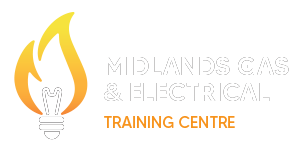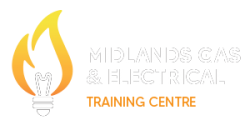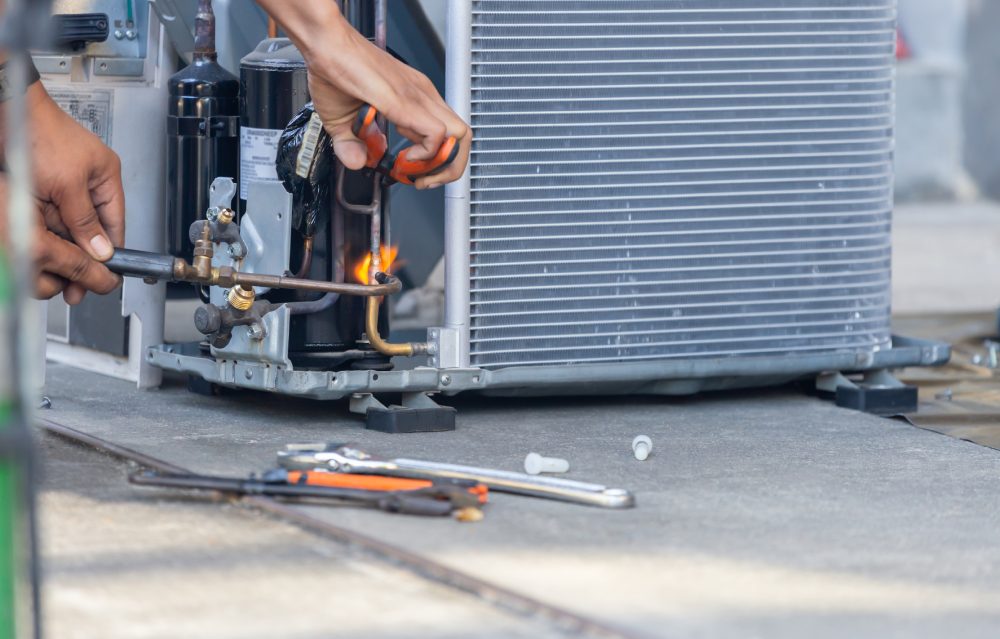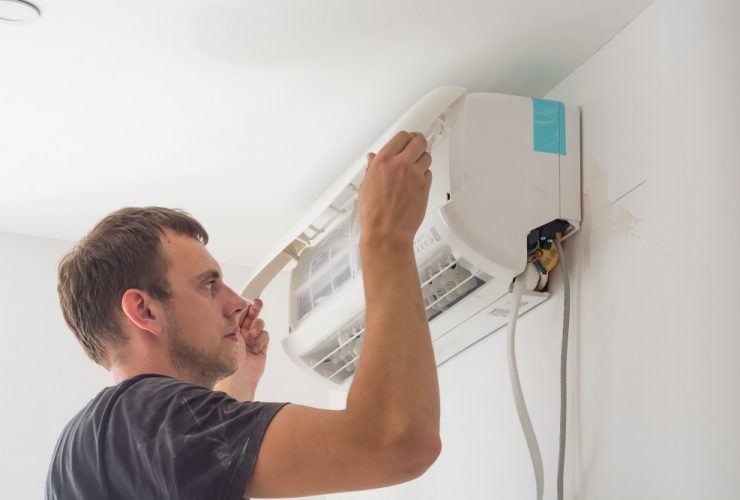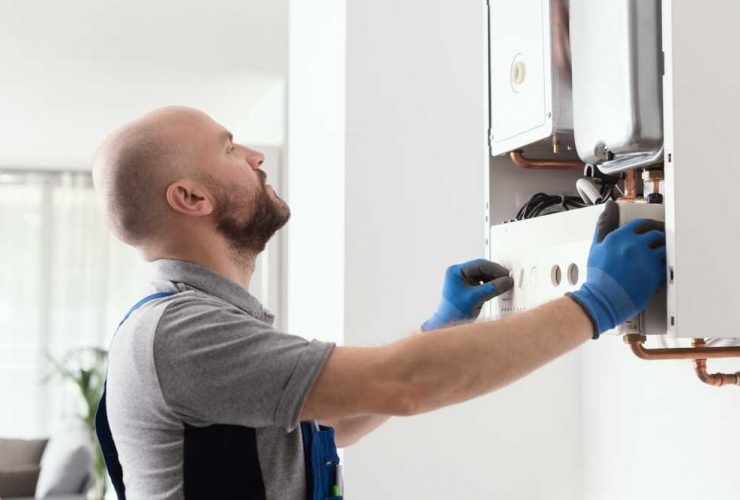F-Gas Explained: What It Is and Why It Matters
What is an F-gas? An F-gas is short for fluorinated gases, which are synthetic gases widely used in refrigeration, air conditioning, foam agents, heat pumps, aerosols and solvents. While they offer vital technological benefits, they also have a significant environmental impact due to their high global warming potential (GWP). Fully understanding the answer to: ‘what is F-gas?’ is essential for HVAC professionals, manufacturers, students and trainees in gas engineering, both for operational safety and regulatory compliance.
MGE Training is here to explain all about F-gases, including why they’re important for these systems, the dangers they pose, why certification and qualifications to work with F-gases are necessary and what the future holds for the industry.
What is F Gas?
F-gases are synthetic greenhouse gases used primarily for cooling and insulation purposes. They are not naturally occurring gases and are carefully regulated in the UK and EU due to their environmental impact. There are several types of F-gases, including:
· Hydrofluorocarbons (HFCs): Common in refrigeration and air conditioning.
· Perfluorocarbons (PFCs): Used in some industrial processes.
· Sulphur hexafluoride (SF6): Used in electrical switchgear and insulation.
· Hydrofluoroolefins (HFOs): Lower GWP alternatives increasingly used in modern systems.
These gases are critical to the functionality of heat pumps, chillers and commercial HVAC systems.
Why F-Gases Are Important?
F-gases not only enable cooling and heating in industrial and domestic applications, but their properties also let systems perform these functions with high energy efficiency, which reduces overall power consumption and improves system longevity. Modern technologies depend on different F-gases to meet performance standards while keeping systems compact and reliable.
Some of the main systems and applications that use F-gas include:
· Stationary refrigeration
· Stationary HVAC
· Stationary heat pump equipment
· Mobile air conditioning in vehicles
· Cleaning solvents in the electronics and aerospace industries
· Fire protection systems like fire extinguishers
What Are the Dangers?
Despite their benefits in heating and cooling these systems and applications, F-gases pose significant environmental and safety risks. This is why it’s crucial to be qualified as either a Category 1 F-gas engineer, meaning you can work on any size of F-gas system, or as a Category 2 F-gas engineer, where you are only certified to work on systems with a maximum capacity of 3kg of F-gas.
But what dangers do F-gases pose to both the environment and the public?
· Environmental risks: Being completely synthetic, F-gases have a high GWP and will contribute to climate change if leaked into the atmosphere.
· Safety hazards: Improper handling can lead to leaks, frostbite or asphyxiation in confined spaces.
· Operational risks: Leaks or incorrect installation can reduce system efficiency and damage equipment.
F-Gas Compliance and Regulations
In the UK, F-gas use, importing, selling, refilling and labelling is tightly controlled. Under the EU F-Gas Regulation (517/2014), which was retained in UK law post-Brexit, only certified professionals are permitted to handle F-gases legally. Compliance ensures proper handling and containment of the gases, which reduces the environmental impact and helps individuals and companies avoid fines and regulatory penalties.
Certifications can be acquired by completing gas training courses, which demonstrate professional competence and are essential for both businesses and individuals working with systems that use F-gases.
The Future and Alternatives
The industry is shifting towards low-GWP refrigerants and sustainable alternatives, such as HFOs (Hydrofluoroolefins) and natural refrigerants. However, this is a challenging and slow process. Many natural refrigerants require specialised system designs, meaning it’s simply not possible to just switch out the old F-gas system with a CO2 alternative, for example. Retrofitting existing applications and infrastructure, while not impossible, is very difficult and costly. This means new systems will be designed to feature more environmentally friendly alternatives. These solutions aim to maintain system efficiency while reducing environmental impact. Fortunately, advances in technology, combined with stricter regulations, are driving a move towards safer, greener HVAC and refrigeration systems.
Get F-Gas Certified with MGE Training
Becoming F-gas certified helps HVAC professionals, facility managers and environmental technicians meet regulatory requirements, handle systems safely and stay ahead in a competitive industry. Certification also opens doors to many other career opportunities and ensures your work meets legal standards.
At MGE Training, we offer comprehensive F-gas training courses designed to prepare learners for certification. We also provide training covering:
· Boiler Fault Finding
· LPG Course
· Unvented Hot Water Course
· Water Regulations Certificate (WRAS)
Get in touch with us to find out more or secure your place on one of our courses.
